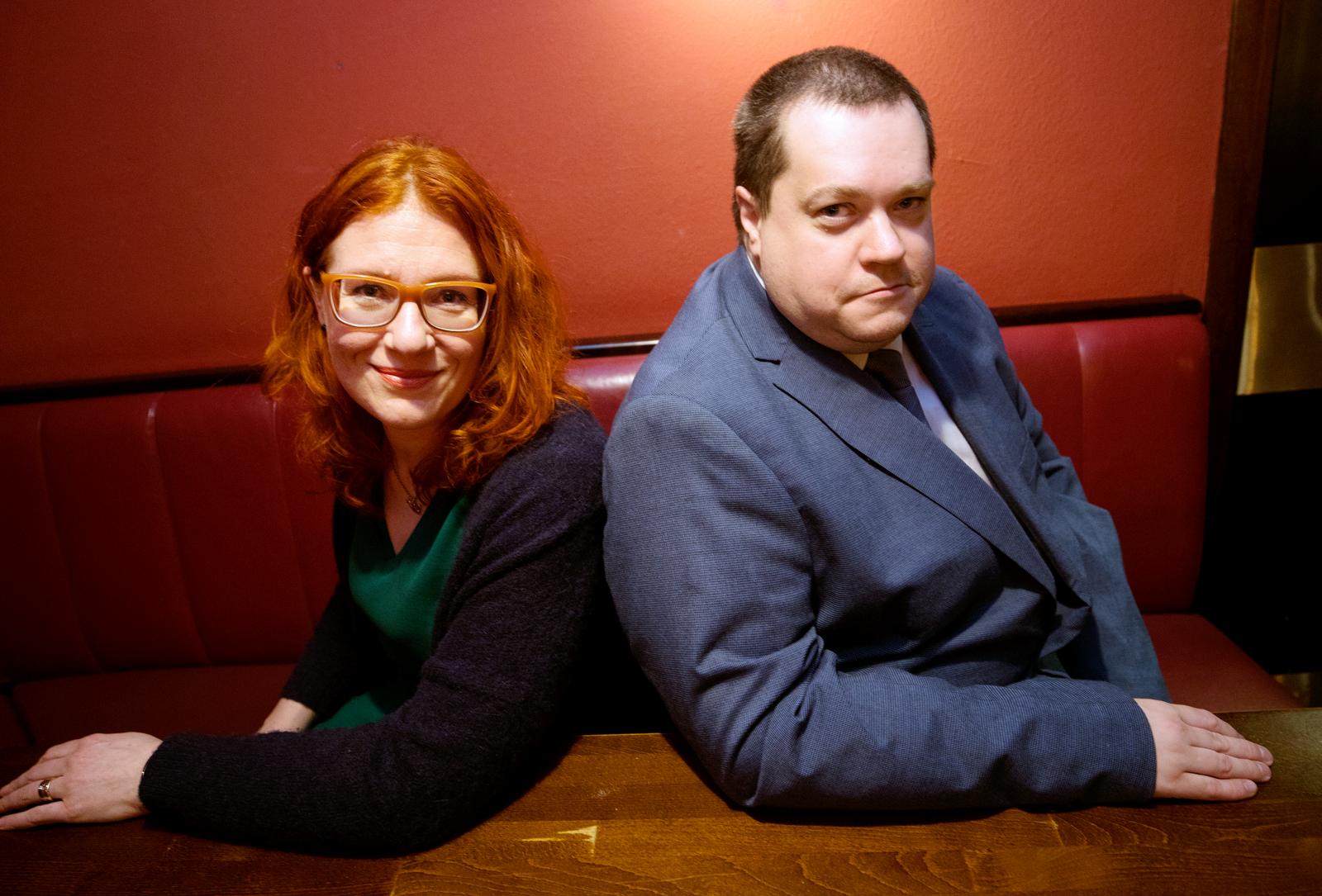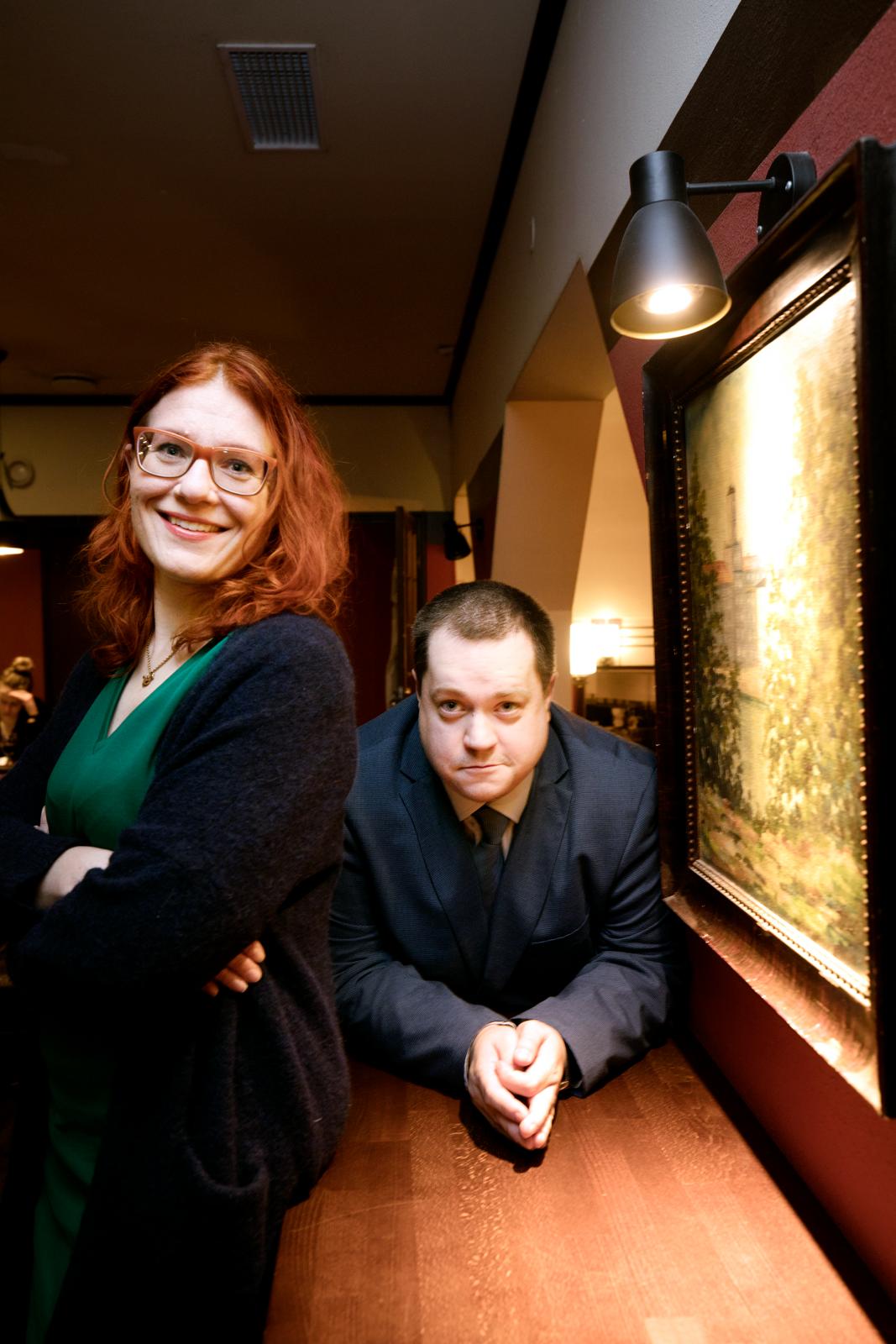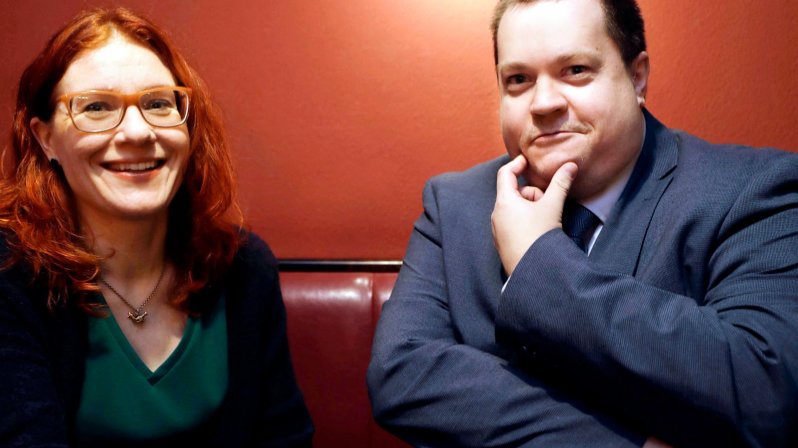New president for PAM – compare the candidates Annika Rönni-Sällinen and Jouni Tallgren
PAM’s new union president will be elected at the Union Congress in June. Thus far, Annika Rönni-Sällinen, a director at the Central Organisation for Finnish Trade Unions SAK, and Jouni Tallgren, a service industry professional, have announced their candidacy. We contacted the candidates to ask them what they thought about a few statements on the future.
I have a good reason to run for president of the union.
Jouni Tallgren: I think that as things stand, the opinions of the members are not properly heard. In some cases, members have felt that there’s a secret group somewhere making all the decisions. Additionally, it would not look good for one of Finland’s largest trade unions to have just one candidate running for president.
Annika Rönni-Sällinen: It has always been important for me to defend the weak. That’s been my main motivation for working in the trade union movement. PAM very much feels like my union. I’ve been working there for several years, and I’m also a member. When a large number of active PAM members asked me to run, it was an easy decision to say yes. I also feel like I have a lot to give. I have a long history in the trade union movement, which has prepared me for the position.

In the future, salaries should be based more on performance and the success of the company.
Tallgren: Basing salaries entirely on performance is not good for the average employee. There must always be a guaranteed minimum wage as a basis. With performance-based pay, the employer can set the boundaries for the performance bonuses to be so high that nobody can reach them.
Rönni-Sällinen: We must continue to base salaries primarily on sectoral collective agreements. However, in order to make sure that the respect employers have for the hard work of PAM members is better represented in their pay slips, we should further develop performance-based salaries and make it possible to jointly agree on performance-based salary systems at the workplace.
The trade union movement will be at a disadvantage if our next government decides to target employees with budget cuts.
Tallgren: I’m afraid that this is a possibility if the current party coalition is allowed to continue after the elections.
Rönni-Sällinen: It’s incredibly important for employees to vote in the coming elections. That way, we may change national politics from the status quo of the current government. If we keep going as we have been, we are sure to have difficult times ahead. Still, I don’t think that the trade union movement would be at a disadvantage per se, although we would have to fight to defend our rights.
We have to make sure that the unpaid extension of working hours decreed by the Competitiveness Pact is removed from the service industry during the next round of collective bargaining.
Tallgren: Absolutely. It’s done nothing but harm.
Rönni-Sällinen: The extension to working hours was decided when times were difficult, so it would be logical to be compensated for it or to return to the previous hours when the economy is more robust. This issue will be addressed in the next round of bargaining, if the employee representatives put it on the agenda.
If I were elected president, there would be significant changes to the way PAM works.
Tallgren: I don’t think there would be major changes. Some formalities maybe. I’m happy with the way PAM works. Things are mostly fine, but there is some room for improvement in certain areas of member service.
Rönni-Sällinen: Yes, in the long run. If we look five or ten years into the past, the union has greatly changed the way it works. We must continue to evolve in the future. The union can’t stand still, it must move with the times.

A good local branch is an active local institution, with close connections to regional decision-makers and employer representatives.
Tallgren: That would be ideal, but I think it’s difficult for the smaller branches to create contacts among decision-makers. This sounds more like something the bigger local branches should be doing. They would have the resources. My branch, Erityisammattien toimihenkilöt ry, is fairly small, with just 1 800 employee members. I’m on the board.
Rönni-Sällinen: Exactly right. We must remember that the local branch is made up of its members and the people who work for it.
In the future, immigrants will be the most significant member segment for PAM. To properly reach them, the union must offer specialised services.
Tallgren: Immigrants will play a significant role in the union – or at least I hope they will, since there will be more of them in the country in general. I believe that they will come to understand the Finnish tradition of trade union membership if people just talk to them about it. It’s likely that the union will have more need of interpreter services in the future.
Rönni-Sällinen: I assume that we will have to offer language training for immigrants, as we have done. Or we could provide other types of training to promote integration and understanding of Finnish culture and the labour market. Meanwhile, other member segments may need their own kinds of specialised services. To better serve immigrants, we might have to set language skill requirements for our staff.
A trade union should be a movement of the people, not a service organisation that just helps its members with employment contracts.
Tallgren: I do think a trade union should be a service organisation, helping students, the unemployed, employees and pensioners – and everyone in between. The union must advocate for their rights.
The union should also explain how things should be done at the workplace. If the situation is very bad, the union can help its members directly and support the shop steward.
Rönni-Sällinen: We need both aspects – I don’t really see this as a productive separation. At its core, the trade union movement is a movement of the people, seeking to improve employment conditions through collective agreements. However, the Finnish trade union system is also a broader institution with a wide field of activities. It just needs to be representative, meaning that it must have a sufficient number of members. For members to feel that their union is useful, it should also ensure that the employee rights negotiated by the unions are actually respected. This requires a service organisation.
Annika Rönni-Sällinen
Age: 42
Employment history: Director of SAK’s Law and Work Environment department. Has nearly 20 years of experience of working in the trade union movement, most of which she spent at PAM as head of contracts and negotiations. She has also been a trainee at the Union of Commercial Employees; an assistant to the legal counsel at the Technical and Special Trades Union (Tekeri) which was a predecessor of PAM; as well as an unemployment subsidy specialist at the unemployment fund for Tekeri.
Education: Lawyer
Family: Husband and three children
Lives: In Espoo
Party affiliation: SDP
Jouni Tallgren
Age: 39
Employment history: Senior advisor at Webhelp Finland Oy, a customer service and telemarketing company. Years of experience in retail, restaurants and cleaning. A member of PAM and its predecessor, Union of Commercial employees, for a total of 24 years. Deputy head shop steward.
Education: Degree in business administration and information management
Family: Parents, sister and her family
Lives: In Järvenpää
Party affiliation: SDP





